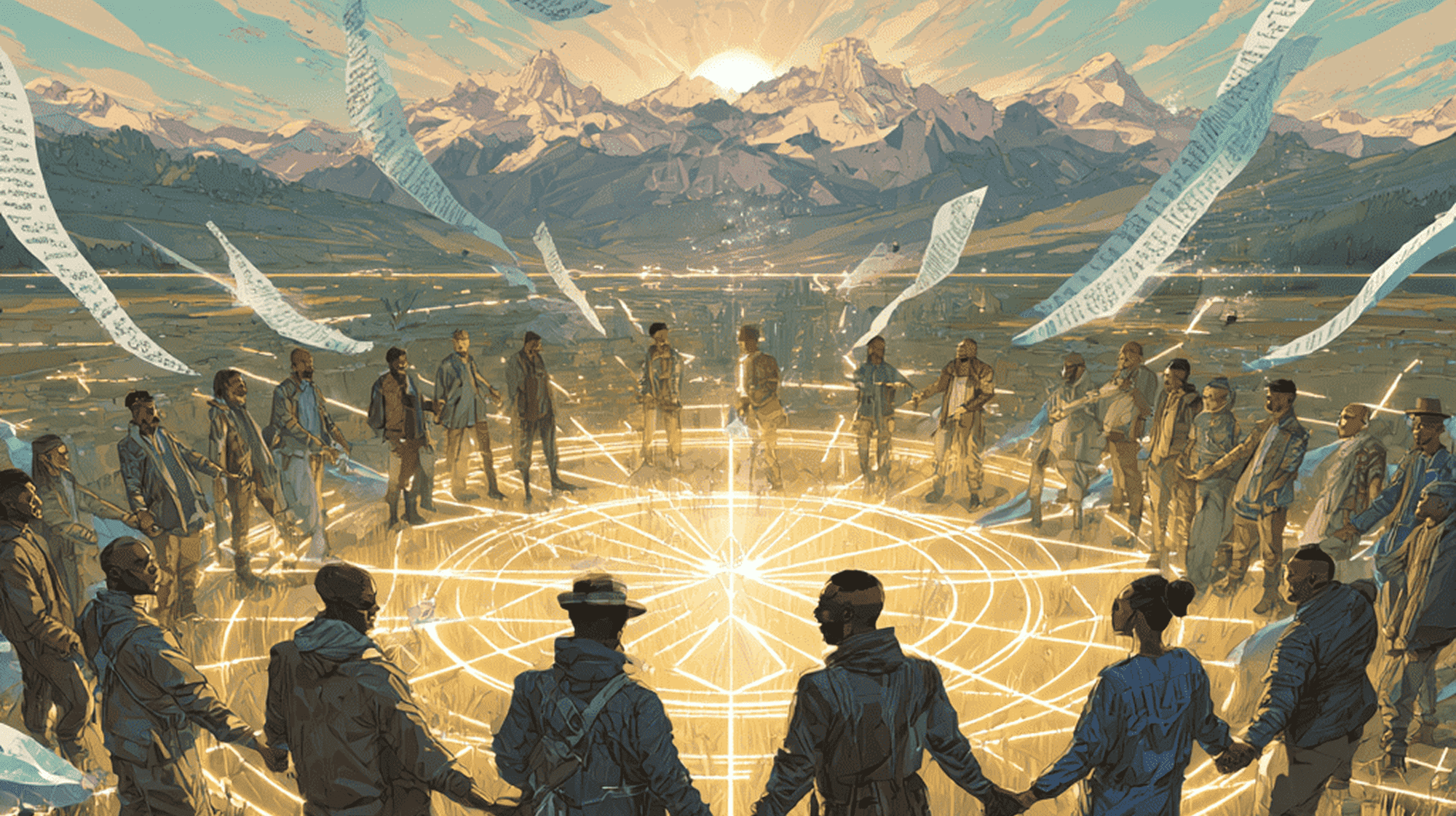Because knowledge that isn’t shared, disappears.
Every great movement depends on the stories it tells about itself.
In open-source ecosystems, those stories live in the documentation — the living manuscripts that connect builders, artists, and communities across time and codebases.
At EthBoulder, we see documentation not as a chore, but as a form of stewardship. It’s how we translate ephemeral innovation into something teachable, remixable, and enduring. It’s how we make the invisible work of collaboration visible again.
The Living Archive of the Open Internet
Documentation is the connective tissue of decentralized systems. It’s how new contributors find their way, how tools become accessible, and how ideas survive the people who first wrote them.
In centralized systems, knowledge tends to fossilize behind closed walls — locked in PDFs, presentations, or paywalls.
But open-source documentation lives differently. It evolves with each commit, each pull request, each new voice that clarifies what was once obscure.
Writing docs isn’t just recording — it’s designing a shared cognitive interface for the community. Every paragraph becomes a line of coordination code.
Writing as a Public Good
Documentation is a public good in the purest sense: non-rivalrous, non-excludable, and infinitely remixable.
When you contribute to open-source documentation, you’re improving the entire ecosystem — not just the project you’re touching.
That extra sentence you add might help someone deploy their first smart contract.
That diagram you redraw might turn a new developer into a lifelong contributor.
That glossary entry you clarify might save a thousand collective hours of confusion.
Open documentation creates compounding returns — for everyone.
From Builders to Storytellers
We often separate the “builders” from the “writers.”
But in open-source, the best builders document as they go — turning their learning process into a roadmap for others.
At EthBoulder, we encourage every contributor to take up both roles:
- Write your process, not just your results.
- Capture the context behind each decision.
- Document the why, not only the how.
When you write as you build, you don’t just create software — you create continuity.
A Culture of Generosity
Open-source thrives on radical generosity.
Documentation is that generosity made tangible. It says: “I struggled here so you don’t have to.”
This is how we scale not just code, but care.
Because the truth is, good documentation doesn’t just make systems more usable — it makes them more humane.
It acknowledges that understanding is a collective act, and that clarity is a kind of love language in technical work.
Building the Commons, Line by Line
Every commit is a contribution to a broader narrative — one that says the internet can be cooperative, not extractive.
By improving documentation, you’re adding to that narrative.
You’re making the open web legible, resilient, and ready for whoever comes next.
This is how we turn projects into communities, and communities into ecosystems.
This is how we make open-source knowledge self-sustaining — a library that never closes.
The Invitation
You don’t need to be a technical writer to start.
You just need curiosity, context, and a willingness to make things clearer than you found them.
Find a project. Read the README. Open an issue. Add an example.
The smallest contribution might be the one that unlocks someone else’s understanding.
At EthBoulder, we document together — because open knowledge builds open futures.


